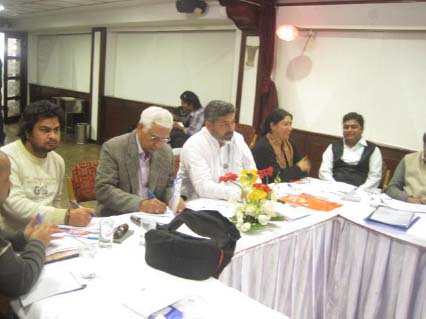/topics/storage-and-supply
Storage and Supply
Citizens voice alarm over recent Supreme Court judgement on interlinking of rivers
Posted on 25 Apr, 2012 10:39 AMThe Supreme Court of India has in its judgment of 27 February 2012 on the interlinking of rivers project, given categorical directions to the Executive Government to implement the ‘project’ as a whole in a time bound manner and has also asked the Centre to appoint a Special Committee to work out the modalities and oversee the implementation of the project.
Critical review of the impacts, challenges, prospects and conflict management for vitally needed inter-linking of rivers in India
Posted on 23 Apr, 2012 12:17 PMGuest post by : Er. Radhey Shyam Goel
1. Introduction
Water supply and demand management of the Indus basin : Options for current and future sustainable water resources management
Posted on 17 Apr, 2012 12:04 PMArticle Courtesy : Hydrology and Earth System Sciences (HESS)
Authors : A.N. Laghari, D.Vanham, and W.Rauch
Training in water supply distribution modelling, EPANET, The Community Engineers, April 28, 2012, Bangalore
Posted on 16 Apr, 2012 08:11 AMOrganizer: The Community Engineers (TCE)
Venue: Yeswanthpur, Bangalore

Description:
Trainees will be provided with the EPANET 2.0 software, Handouts and EPANET Manual. TCE has carried out several training in Water Supply Distribution Modelling using EPANET across India.
Toolkit for integrated urban water management, developed by Institute for Resource Analysis and Policy
Posted on 12 Apr, 2012 11:24 PMThe review included, but was not limited to urban hydrology, management of water supply infrastructure, water resources management, water quality management (WQM), groundwater management, technical and economic instruments for water demand management, technical and economic aspects of leakage reduction, environmental and economic aspects of wastewater treatment and reuse, storm water management
Central Water Commission and ISRO launch Water Resources Information System (WRIS), a comprehensive solution for accessing data on water in India
Posted on 11 Apr, 2012 02:36 PMDear India Water Portal readers,
Water law in a globalised world - Philippe Cullet discusses the need for creating a new framework
Posted on 09 Apr, 2012 11:09 PM1. Introduction
Status of water supply in in class-I cities and class-II towns of Uttar Pradesh (UP)
Posted on 17 Mar, 2012 10:15 PMSource: Central Pollution Control Board’s 2009-10 Report
Class of cities/towns |
The water workshop for apartment communities, ApartmentADDA, Febuary 25 2012, Bangalore
Posted on 27 Feb, 2012 05:06 PMOrganizer: ApartmentADDA
Draft National Water Policy 2012 - Dialogue organised by NEER Foundation, Meerut on February 18, 2012
Posted on 27 Feb, 2012 10:07 AMGuest post by: Raman Kant Tyagi






